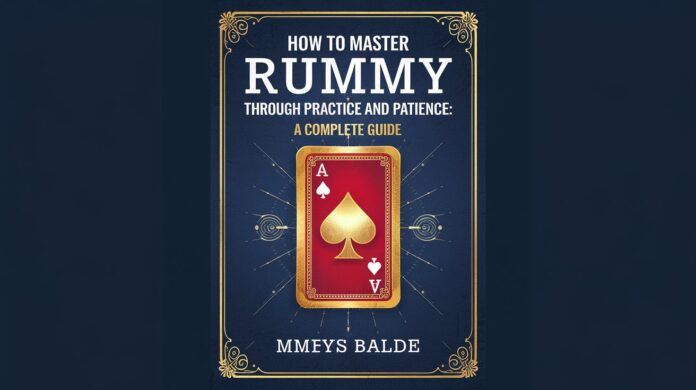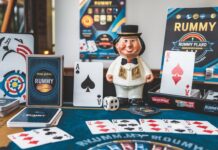Have you ever watched in awe as someone effortlessly arranges their cards, discards strategically, and declares “Rummy!” while you’re still trying to figure out your first meld? Mastering the game of Rummy isn’t about luck or innate talent—it’s about dedicated practice and unwavering patience. This comprehensive guide will walk you through the journey from Rummy novice to master, with actionable strategies, practice techniques, and mental approaches that will transform your game.
Understanding the Rummy Journey: Why Practice and Patience Matter
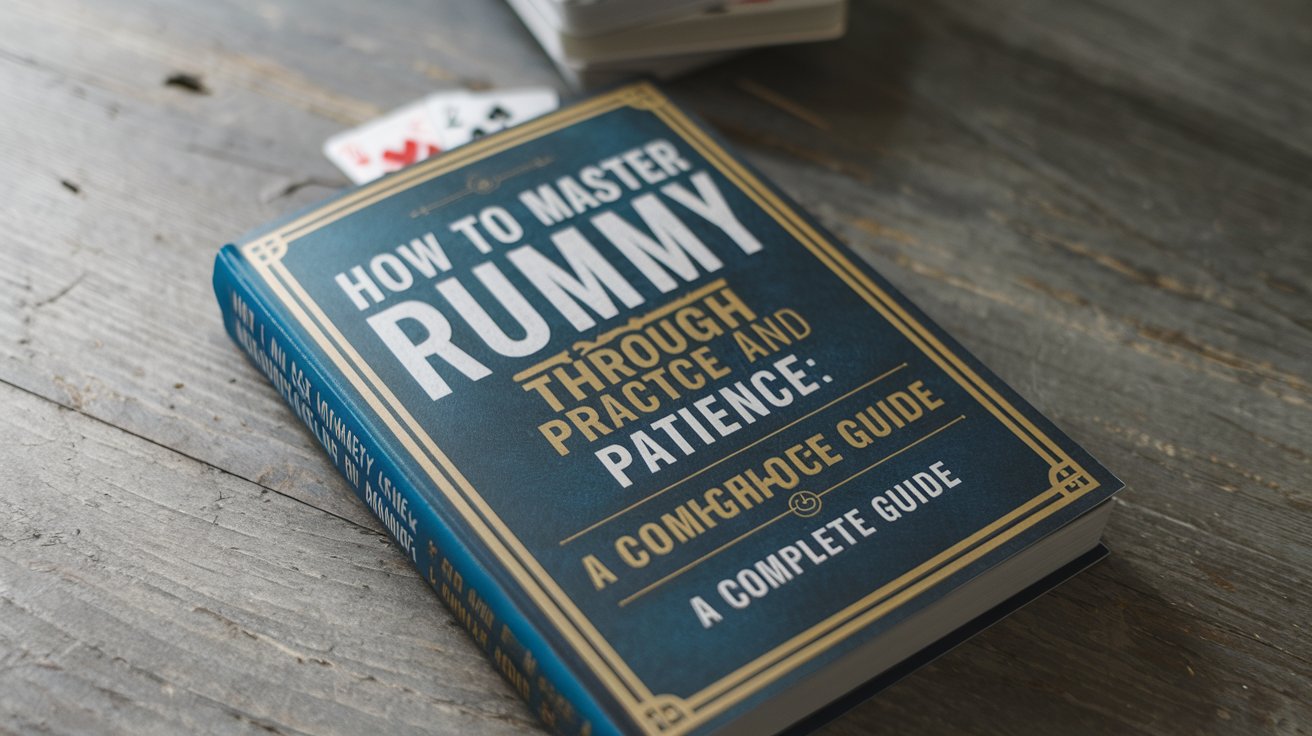
Rummy, in all its variations, represents a perfect blend of skill and chance. While you can’t control the cards you’re dealt, you can control how you play them. This is where practice and patience become your most valuable assets.
The path to Rummy mastery isn’t linear—it’s a winding road of learning from mistakes, recognizing patterns, and gradually developing an intuition for the game. Players who rush this process often find themselves stuck in mediocrity, while those who embrace the journey with patience consistently improve.
Consider this: professional Rummy players typically spend thousands of hours perfecting their craft before reaching mastery. They understand that each game, win or lose, offers valuable lessons.
The Fundamentals: Ensuring You Have a Solid Foundation
Before diving into advanced strategies, let’s ensure you have the basics down pat. Mastering these fundamentals through practice is essential:
Card Organization and Sorting
How you arrange your cards isn’t just about aesthetics—it’s about strategic thinking. Experiment with different sorting methods:
- By suit and sequence (traditional method)
- By potential melds (grouping cards that might form sets)
- By card value (especially useful in point-based Rummy variations)
Practice reorganizing your hand quickly as you draw and discard. With time, you’ll develop a personal system that enhances your strategic vision.
Understanding Card Value and Priority
Not all cards are created equal in Rummy. Through consistent practice, you’ll learn to prioritize:
- Middle value cards (4-9) which have greater melding flexibility
- Cards that connect to others in your hand
- Cards that are less likely to help opponents
Practice evaluating your initial hand quickly. Can you identify which cards to keep and which to discard within seconds? This skill only comes through repetition.
Reading the Discard Pile
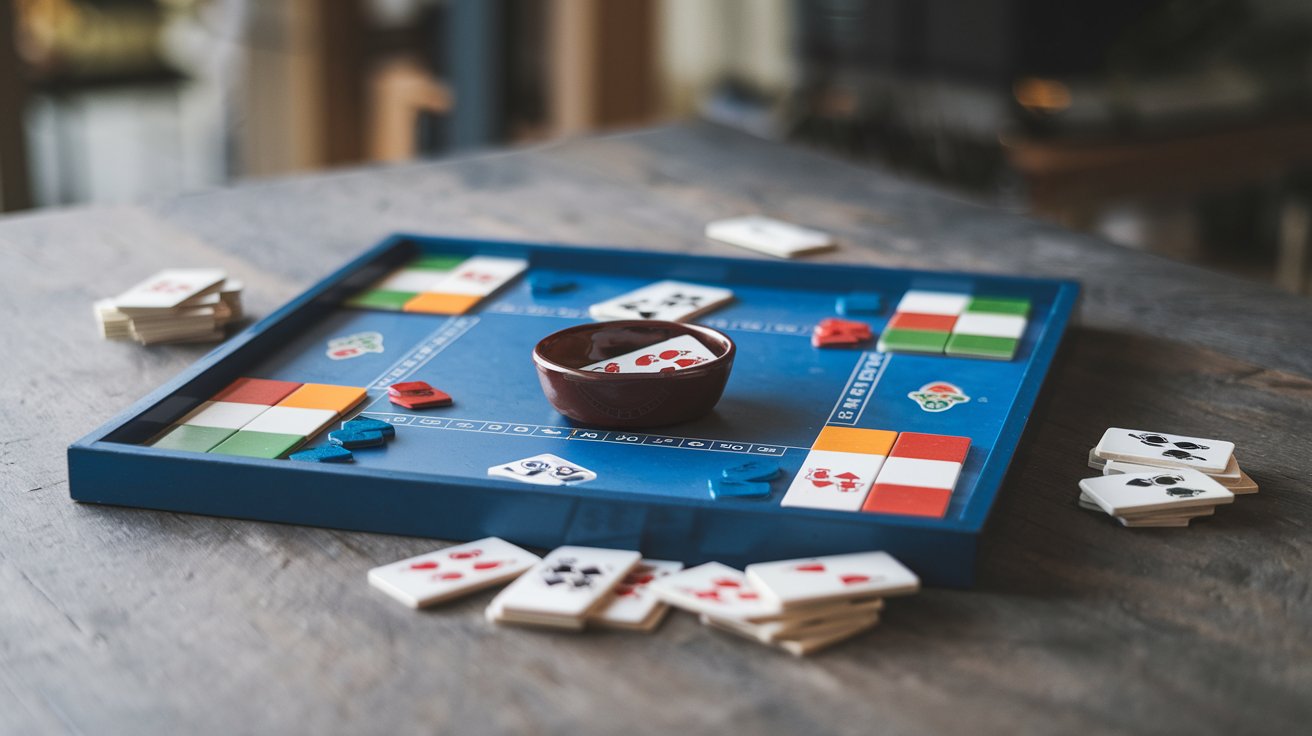
The discard pile tells a story—but only if you know how to read it. Practice observing:
- Which cards opponents avoid picking up
- Patterns in what gets discarded
- Timing of discards relative to the game state
Patient observation of the discard pile over hundreds of games will give you insights into opponents’ hands that less experienced players miss entirely.
Structured Practice: Making Every Session Count
Random play might be fun, but structured practice accelerates mastery. Here’s how to make your practice sessions more effective:
Daily Timed Sessions
Commit to playing Rummy for a set period each day rather than a specific number of games. This approach encourages:
- Focus on quality rather than rushing through games
- Better concentration during each hand
- Development of consistent playing habits
Start with 30-minute sessions and gradually increase as your stamina improves. Track your progress over weeks and months to see your development.
Single-Skill Focus Sessions
Instead of trying to improve everything at once, dedicate practice sessions to specific skills:
- Monday: Focus solely on initial hand evaluation
- Tuesday: Practice tracking discards methodically
- Wednesday: Work on endgame strategy
- Thursday: Concentrate on calculating probabilities
- Friday: Practice reading opponents’ signals
This targeted approach builds competence in all areas of the game systematically, rather than developing uneven skills.
Post-Game Analysis
The most valuable practice happens after the cards are put away:
- Record key hands and decisions from your games
- Analyze why you won or lost
- Identify missed opportunities
- Consider alternative moves you could have made
Patient, honest self-assessment accelerates improvement faster than simply playing more games without reflection.
Mental Game: The Role of Patience in Rummy Mastery
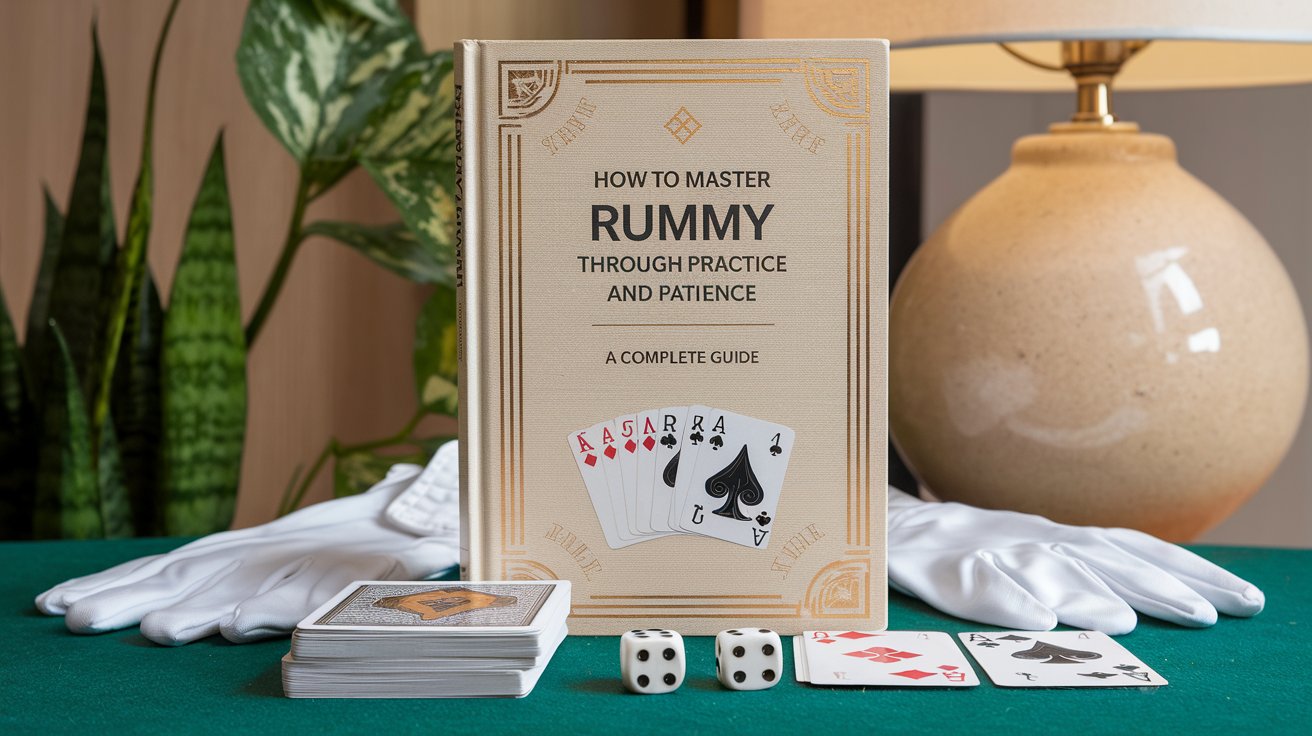
Rummy isn’t just about cards—it’s about mental fortitude. Cultivating patience affects every aspect of your game:
Emotional Regulation
Frustration is the enemy of good Rummy. Practice these patience-building techniques:
- Deep breathing between hands
- Maintaining the same pace regardless of your hand quality
- Accepting bad hands as learning opportunities
- Celebrating opponents’ good plays as learning moments
With practice, you’ll develop emotional stability that keeps you playing optimally even when cards aren’t falling your way.
Strategic Patience
Knowing when to hold back is as important as knowing when to act:
- Sometimes holding a card your opponent needs is better than completing your own meld
- Waiting for the perfect card can be more valuable than settling for an immediate but inferior play
- Observing several rounds before making assumptions about opponents’ strategies pays dividends
Through practice, you’ll develop the discipline to delay gratification for strategic advantage—a hallmark of Rummy masters.
Concentration Stamina
Rummy requires sustained attention. Build your concentration muscles through:
- Gradually increasing the length of your playing sessions
- Minimizing distractions during practice
- Playing when you’re mentally fresh
- Using mindfulness techniques to stay present
With practice, your ability to maintain focus throughout long games or tournaments will become a significant competitive advantage.
Advanced Strategies That Require Practice to Perfect
Once you’ve built a solid foundation, these advanced strategies will elevate your game—but be patient, as they take substantial practice to master:
Card Counting and Probability Assessment
Elite players track cards and calculate probabilities instinctively:
- Practice keeping mental track of key cards that have been played
- Calculate the likelihood of drawing needed cards based on what you’ve seen
- Adjust strategy based on mathematical probabilities rather than hope
Start by tracking just one suit or one value, then gradually expand your tracking capacity through consistent practice.
Defensive Discarding
Sometimes what you don’t give your opponent is more important than what you keep:
- Practice identifying which cards are likely valuable to opponents
- Learn to balance defensive discards with your own melding needs
- Develop timing sensitivity for when to switch between offensive and defensive play
This skill only emerges after hundreds of games when patterns become recognizable across different opponents and situations.
Reading Opponents
The psychology of Rummy is as important as the mechanics:
- Notice timing tells—how long opponents take to make decisions
- Observe physical tells—changes in posture, expression, or card handling
- Track consistent patterns in individual opponents’ strategies
Patient observation of these human elements transforms good players into great ones, but it requires playing against the same opponents repeatedly to develop this sensitivity.
Practice Environments: Where to Hone Your Skills
Different practice environments offer unique benefits for the patient Rummy student:
Digital Platforms
Online Rummy offers advantages for structured practice:
- Play more hands in less time
- Track statistics automatically
- Practice against different skill levels
- Work on specific skills through tutorials
Use digital platforms for high-volume practice but be aware that they may not develop all the observational skills needed for live play.
Home Games
Regular games with friends or family provide:
- A comfortable environment to experiment with new strategies
- Familiar opponents to practice reading tells
- Opportunity for immediate discussion and feedback
- Less pressure than competitive environments
Set up weekly games and use them as deliberate practice sessions rather than purely social encounters.
Tournaments and Clubs
As your skills advance, structured competitive environments offer:
- Exposure to diverse playing styles
- Pressure situations that test your mental game
- Networking with more experienced players
- Benchmarking your progress against serious competition
Start with small local tournaments and patiently work your way up as your confidence and skill increase.
Creating a Personal Development Plan
Mastering Rummy requires a systematic approach. Create a personalized roadmap:
Skill Assessment
Begin by honestly evaluating your current abilities:
- Rate yourself in different aspects of the game
- Identify your three biggest strengths
- Acknowledge your three most significant weaknesses
- Set baseline metrics to measure improvement
This assessment provides direction for your practice and patience in addressing deficiencies.
Milestone Setting
Rather than focusing solely on winning, establish skill-based milestones:
- Successfully track all discards for an entire game
- Calculate probabilities accurately in real-time
- Execute complex melding strategies
- Maintain concentration through a multi-hour session
Celebrate reaching these milestones as meaningful progress on your mastery journey.
Learning Resources
Supplement practice with knowledge:
- Read books on Rummy strategy and psychology
- Watch instructional videos from expert players
- Join forums to discuss strategy with other enthusiasts
- Find a mentor to provide personalized guidance
Patient study combined with active practice creates deeper understanding than either approach alone.
Common Plateaus and How to Overcome Them
Every Rummy player experiences plateaus. Recognizing and addressing them requires patience:
The Intermediate Plateau
Many players get stuck at an intermediate level where:
- Basic strategies are mastered
- Advanced concepts are understood but inconsistently applied
- Progress seems to stall despite continued play
Break through by:
- Recording and analyzing your games more rigorously
- Seeking feedback from stronger players
- Focusing on one advanced skill at a time until it becomes automatic
- Changing practice environments to face new challenges
The Mental Game Plateau
Sometimes technical skills advance while psychological skills lag:
- You know what to do but struggle with execution under pressure
- Emotional responses interfere with optimal decision-making
- Concentration wavers during longer sessions
Address this through:
- Mindfulness practices applied specifically to card play
- Progressive exposure to more competitive environments
- Developing pre-game and in-game mental routines
- Physical conditioning to support mental endurance
The Mastery Plateau
Even advanced players hit plateaus where further improvement seems impossible:
- Fine margins separate you from the very best players
- Gains become incremental rather than transformative
- Motivation may waver without obvious progress
Overcome this through:
- Teaching others (which deepens your own understanding)
- Exploring variants of Rummy to gain new perspectives
- Taking strategic breaks to prevent burnout
- Finding new competition that challenges your weaknesses
Conclusion: The Endless Journey of Rummy Mastery
Mastering Rummy isn’t a destination—it’s a continuous journey. The beauty of this classic card game lies in its depth; even after decades of play, there are always new situations, strategies, and insights to discover.
The players who truly master Rummy are those who fall in love with the practice itself, who find joy in small improvements, and who approach each hand with both the excitement of a beginner and the wisdom of experience.
Remember that patience isn’t passive—it’s the active choice to trust the process, to value learning over immediate results, and to persist through challenges. Combined with deliberate practice, this patience-centered approach will gradually transform you from a casual player into a true Rummy master.
So shuffle the deck, deal the cards, and embrace each hand as an opportunity to grow. Your Rummy mastery awaits—one patient practice session at a time.

Zareb Saleh is a journalist at Gulf Today and a ghostwriter for Gameoholic, specializing in gaming, technology, and digital culture. With a keen eye for industry trends, he delivers insightful stories that engage and inform readers.

